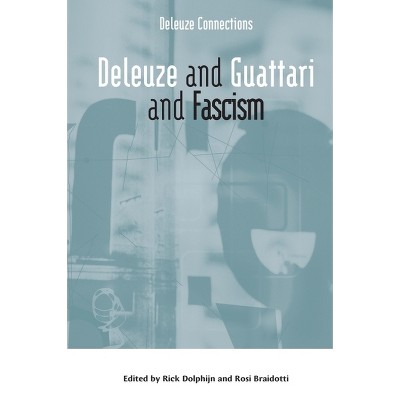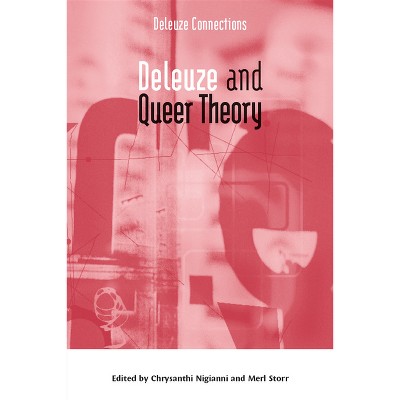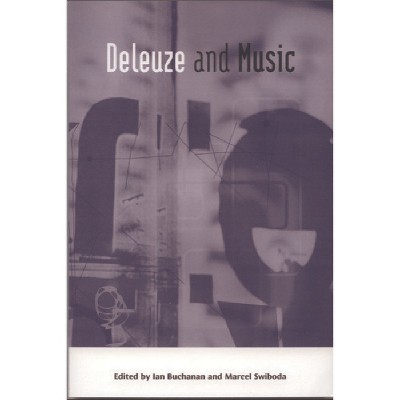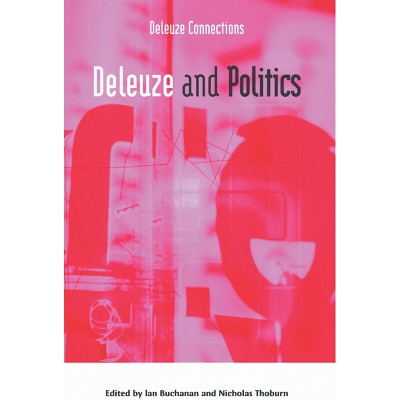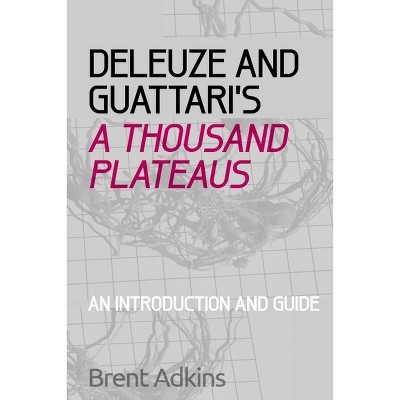Sponsored

Deleuze and Guattari and Terror - by Anindya Purakayastha & Saswat Das (Hardcover)
In Stock
Sponsored
About this item
Highlights
- What can philosophy offer when we suffer from brutal acts of terror and barbarous acts of counter-terror?
- About the Author: Anindya Sekhar Purakayastha is Professor of English at Kazi Nazrul University, India.
- 264 Pages
- Philosophy, Individual Philosophers
Description
About the Book
This collection of essays considers the contribution of Deleuze and Guattari's philosophical ideas in forging a critique of global terror and counter-terror.
Book Synopsis
What can philosophy offer when we suffer from brutal acts of terror and barbarous acts of counter-terror? Is the very grammar of the network of terror and anti-terror moves locked in the same ideology of power and state-ism that demands a deeper micro-analysis of human fetish for coercion and cruelty? Do we need schizoanalysis of the neurosis of terror and counter-terror where the work of Deleuze and Guattari can offer insight? This collection of essays considers the contribution of Deleuze and Guattari's philosophical ideas in forging a critique of global terror and counter-terror. Deleuze's concept of nomadic thought provides a starting point for this fetish for coercion and terrorizing power. The contributors identify areas of political terror, state terror, capitalist corporate terror, religious terror, cyber-terror, social terror and cultural terror to enable the inherent power structure within all forms of terror to be unpacked.From the Back Cover
A theorization of the contemporary phenomenon of terrorism What can philosophy offer when we suffer from brutal acts of terror and counter-terror? Is the very grammar of the network of terror and anti-terror locked into the same ideology of power and state-ism that demands a micro-analysis of human fetishes for coercion and cruelty? Do we need schizoanalysis of the neurosis of terror and counter-terror for which the work of Deleuze and Guattari can offer insight? This collection of essays considers the contribution of Deleuze and Guattari's philosophical ideas in forging a critique of global terror and counter-terror. Deleuze's concept of nomadic thought provides a starting point for this fetish for coercion and terrorizing power. The contributors identify areas of political terror, state terror, capitalist corporate terror, religious terror, cyber-terror, social terror and cultural terror to enable the unpacking of inherent power structure within all forms of terror. Anindya Sekhar Purakayastha is Professor of English at Kazi Nazrul University, India. Saswat Samay Das is an Associate Professor in the Department of Humanities and Social Sciences at the Indian Institute of Technology, Kharagpur, India.About the Author
Anindya Sekhar Purakayastha is Professor of English at Kazi Nazrul University, India. He was Fulbright Nehru Academic and Professional Excellence Fellow 2018-19 at the University of Massachusetts, Amherst. He was also a Fellow at the Institute for Critical Social Inquiry, New School for Social Research, New York in 2017. Among his recent authored and co-edited volumes are Violence in South Asia: Contemporary Perspectives (Routledge, 2019), Literature, Cultural Politics and Counter-readings: Hamlet as the Prince of Deconstruction (Aakar Books, 2019). He co-edits Kairos, A Journal of Critical Symposium and is one of the founding members of the Postcolonial Studies Association of the Global South (PSAGS).
Saswat Samay Das is an Associate Professor in the Department of Humanities and Social Sciences, Indian Institute of Technology, Kharagpur, India. He is co-editor of Deleuze, Guattari, and the Global Pandemic: Revolutionary Praxis and Neoliberal Crisis (Bloomsbury) and Deleuze, Guattari and Post-neoliberalism (Bloomsbury). He is the leading editor of Technology, Urban Space and the Networked Community, Palgrave Macmillan (forthcoming).
Indian Institute of Technology, Kharagpur, India
Shipping details
Return details
Frequently bought together

Trending Philosophy











